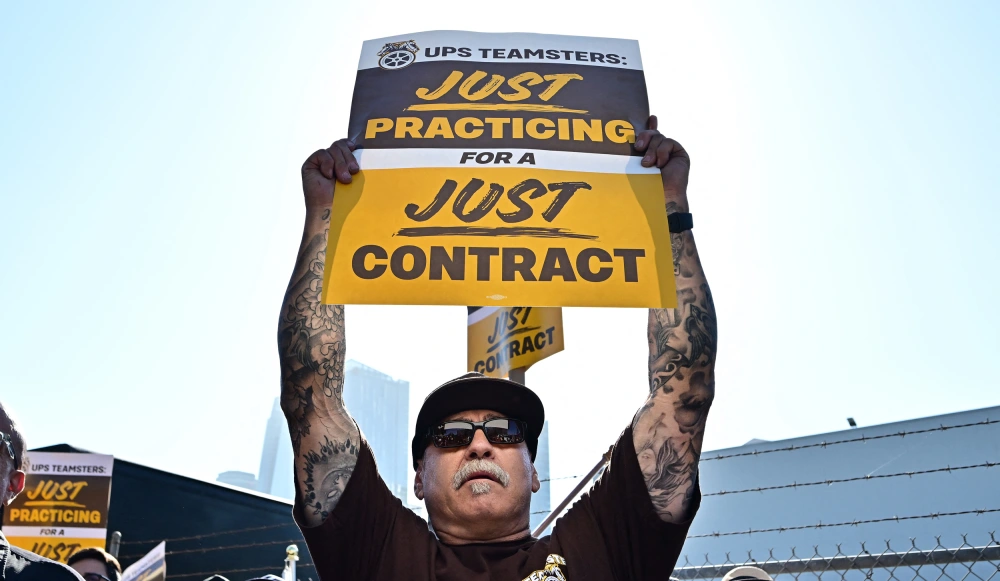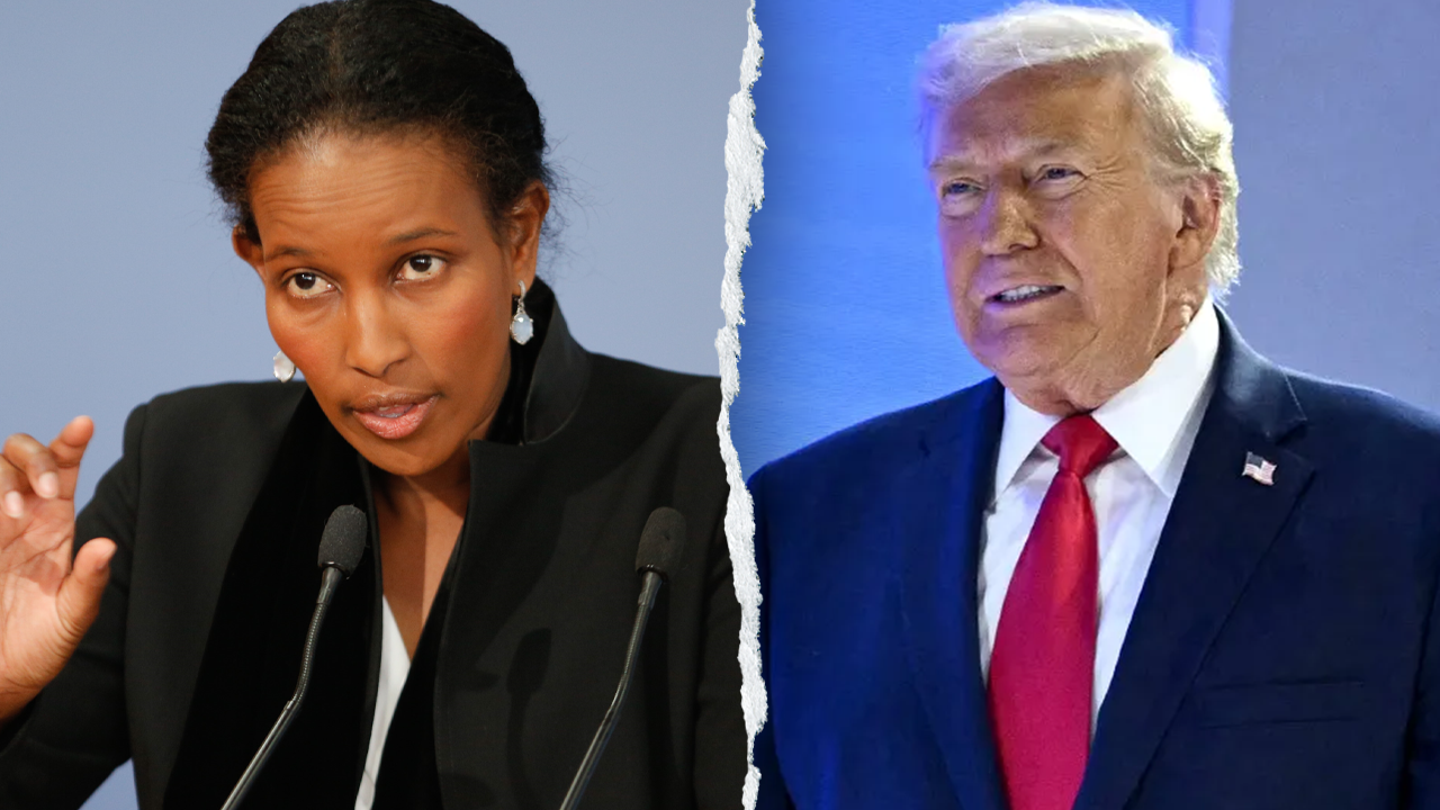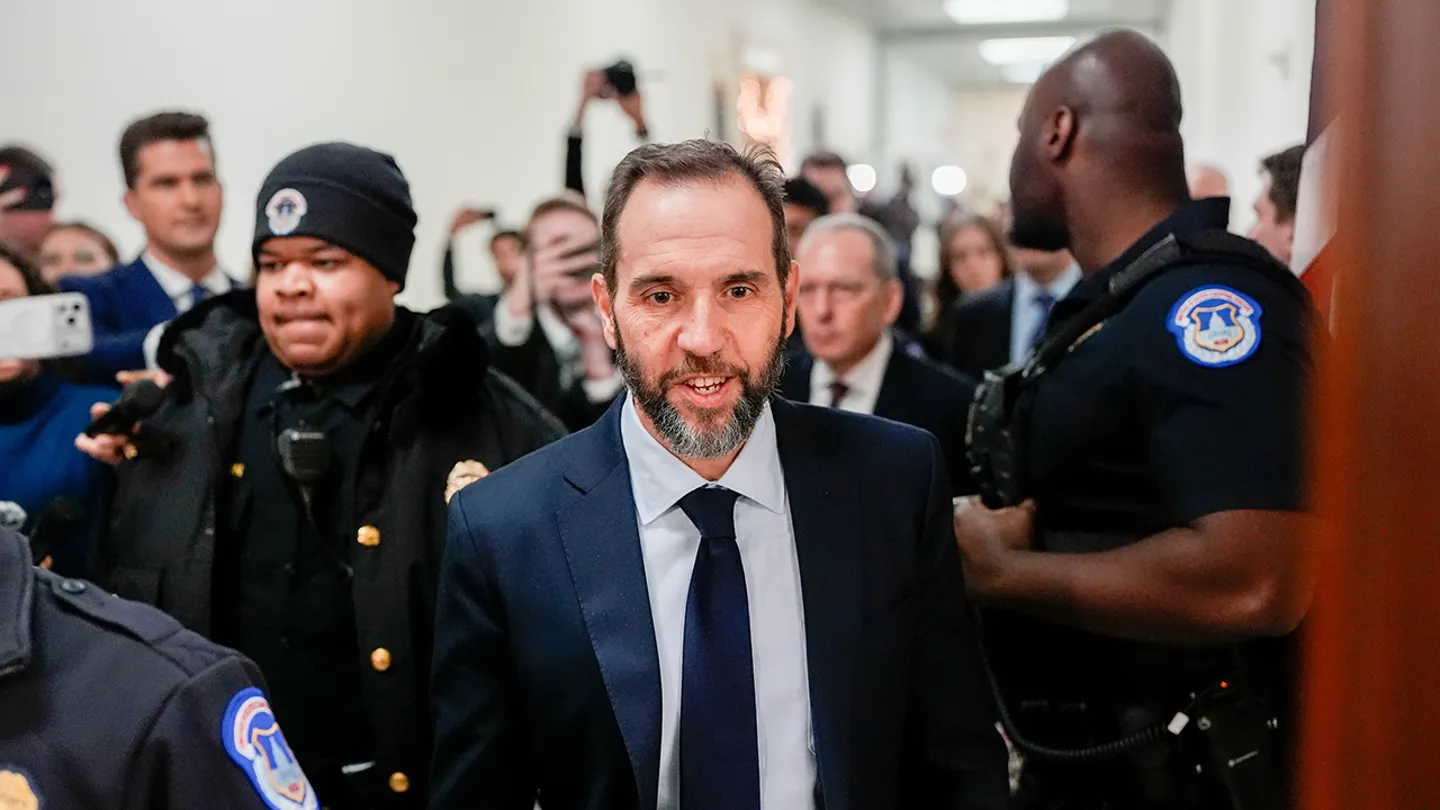Francine Eason and Andrew Gangwer are both union members, and affordability is top of mind for each of them. But she’s voting for Vice President Kamala Harris and he’s backing former President Donald Trump.
Eason works as a housekeeper at a hotel in Philadelphia, where she has belonged to UNITE HERE Local 274 for five years. Gangwer is a Teamster of 10 years in Jacksonville Beach, Florida, who works as an operations specialist at Anheuser-Busch.
“When they talk about strengthening the economy through corporations, that’s who pays me every week,” Gangwer, a 50-year-old registered independent, said of Republicans’ pro-business messaging. “It gives me the opportunity to fight for a better contract next time, because we can say, ‘Hey, look at these record profits you’re making.’”
The idea that the working class is naturally united is mistaken.
While union membership has continued to edge down in recent years, first the Biden-Harris administration and then the Harris campaign have pushed to shore up the clout of organized labor and Democratic support within its ranks. But views like Gangwer’s show there may be limits to that effort.
Harris has taken aim at “excessive” corporate profits and promoted a more blue-collar ticket, looking to fend off a rival who who peeled away more union voters from what remains a Democratic-leaning chunk of the electorate. Trump lost labor households by just 8 percentage points in 2016 after President Barack Obama won them by 18 four years earlier — still higher than Biden’s improved 16-point margin with union voters in 2020.
“Trump exploited that open door,” said Tobias Higbie, a professor of history and labor studies at the University of California, Los Angeles, referring to Democratic policies that embraced free trade and lighter regulation at a time when unions were on the wane. And while labor has been flexing more political muscle lately, it remains a heterogeneous cohort of 14.4 million people all heading to the ballot box with a range of interests and preoccupations.
“The idea that the working class is naturally united is mistaken,” Higbie said.
Harris secured the endorsements of labor groups from the AFL-CIO to the National Education Association and repeats her belief on the trail that “when unions are strong, America is strong.” Meanwhile, Teamsters President Sean O’Brien spoke at the Republican National Convention last month, praising Trump as “tough” before slamming as “economic terrorism” his recent suggestion that workers should be fired for organizing. His running mate, Sen. JD Vance of Ohio, visited a United Auto Workers picket last fall shortly after President Joe Biden did the same.
Eason, a Democrat, isn’t voting strictly as a union member. Other top concerns include gun violence, which she said remains “out of control” in Philadelphia despite it seeing the steepest drop in those incidents of any major U.S. city so far this year, after a record surge during the pandemic.
But labor issues are important for Eason, who has worked in the hospitality industry for 15 years, but only five as a union member. She said she sees the difference between her wages and treatment compared to her nonunionized counterparts nearby, and being in a union has boosted her confidence.
“In the hotel where I work at now, my mouth is big,” she said. “I’m not scared to fight against the boss when they’re not treating us fairly.”
She believes Harris can deliver for her and fellow union members, calling the Democratic nominee a “breath of fresh air” for whom she’s canvassing alongside UNITE HERE colleagues.
In the hotel where I work at now, my mouth is big. I’m not scared to fight against the boss.
FRANCINE EASON, UNITE HERE LOCAL 274, PHILADELPHIA
Gangwer, meanwhile, said he has struggled to grapple with recent inflation. He pushed off “must-do’s” on his home, like a partial roof replacement, because it’s too expensive. His co-workers have become more willing to vote for Republicans in recent years, he said, citing the party’s commitments to cut taxes and an emphasis on law and order.
Jeff Egkan has also seen colleagues warm up to conservative candidates. But the retired Teamster in San Diego County, California, who worked for UPS for 33 years, said he isn’t persuaded by Republicans’ pitch. Egkan is a Democrat who plans to vote for Harris, and he’s worried Trump’s rhetoric toward union voters isn’t genuine.
“I haven’t seen specific promises from President Trump,” he said. “I have seen specific promises from Vice President Harris. She said she will sign the PRO Act,” he said of a Democratic bill that would strengthen workers’ rights to organize and increase penalties on employers that violate them.
Cecilia Ortiz is planning to back Harris after voting for the first time in 2020 for Biden. Ortiz, 43, is a lead passenger service agent at Phoenix Sky Harbor International Airport and a member of the SEIU’s Airport Workers United, and said she was disappointed with Trump’s term in office. “He was just more about himself,” she said. “He doesn’t talk policies.”
Since then, she has stayed engaged. Last year, she got involved in organizing for more protections for employees who work in the intensifying Arizona heat, which has raised safety concerns and forced the aviation industry to adapt. Phoenix passed a worker heat-protection ordinance earlier this year.
“Kamala and Tim Walz,” Ortiz said, “they are big advocates for investing in good union jobs, and that’s what we need here in Arizona,” she said, nodding to Harris’ running mate, who was himself a union member as a public school teacher in Minnesota before becoming its governor. Ortiz added that protecting abortion access is also a top issue for her, with Arizonans weighing a ballot referendum on the issue this fall.
Dahlia Saba, an electrical engineering Ph.D. student at the University of Wisconsin-Madison, is undecided, but only on whether to vote for Harris or not at all. Her top issue is the war in Gaza. Saba had family members in the region who were able to evacuate earlier this year and is disappointed with the Biden-Harris administration’s robust support for Israel.
“This is a decision that I don’t take lightly,” said Saba, who belongs to the Teaching Assistants Association, the oldest graduate student union in the country.
Graduate student workers’ power often fluctuates depending on who is in the White House determining labor policy. But for Saba, backing members of the current administration amid the civilian bloodshed and suffering in Gaza “would be a signal that this is something Democrats can get away with in the future,” she said.
There are signs Democrats may be able to overcome some of these fissures, experts said.
They can’t break the unions. So we’re not afraid of that. It’s almost impossible.
“The labor movement has become much more active since the pandemic,” Higbie said. “There was ‘Striketober’ [and] ‘Hot Labor Summer.’ … When you have a lot of activity like that, it changes the political dynamic.” A more active labor movement could re-engage rank-and-file members to vote more like union leadership does, he added.
Not for Gangwer, though. If anything, labor’s recent show of strength takes some pressure off of having to defend it at the ballot box.
“They can’t break the unions,” he said. “So we’re not afraid of that. It’s almost impossible.”




